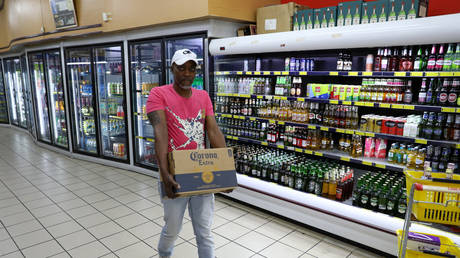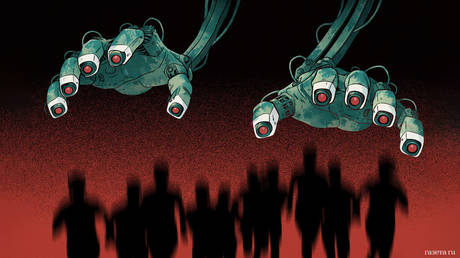
South Africa, which has some of the toughest Covid-19 restrictions, is set to relax them, including a ban on alcohol sales. To avert a feared onslaught of booze buyers, retailers are proposing what seems an outlandish scheme.
Alcohol is expected to rain on the arid market of South Africa from June 1, when the government is set to partially lift its coronavirus-related restrictions. The blanket ban on alcohol and tobacco sales was implemented late in March.
The government draft plan would allow liquor stores to operate from Monday to Wednesday between 8am and 12pm. Retailers, however, fear that the stores might get swarmed (and, potentially, ransacked) by parched and angry clients.
That limited working hours “will inevitably create a pressure-cooker situation where customers will stand in massive queues in the streets, and will boil over into frustration and even possible violence and looting when 12pm arrives and they have not even entered the premises yet,” the Liquor Traders Association of South Africa (LTASA) has warned, adding that the retailers have already reported an increase in break-ins and theft by particularly thirsty individuals. “Many of our member’s stores have suffered significant losses already.”
The LTASA has rolled out its own list of proposals, sharing its insights on how to make the lifting of the ban less tense. The association suggested extending opening hours from Monday to Friday, 9am to 6pm. On Saturday, the stores should be allowed to operate from 9am to 4pm. It will “reduce congestion and the potential associated risks to employee and customer safety,” as well as give the retailers time to restock, the LTASA argued.
Of particular note, however, is a proposed method of reducing the customer-load during the first week – based on surnames. Shoppers whose second names start with a letter between A and M should shop for alcohol on Monday and Wednesday, while the less-fortunate ones whose surnames start with the letters N to Z should do so on Tuesdays and Thursdays, the association suggested.
All the customers will have to provide their IDs to prove they are eligible for shopping. There’s a peculiar exception, however, for “high risk customers” who will receive priority service from the stores.
So far, there’s been no indication whether the LTASA’s proposals will be accepted by the government before the happy day of June 1.
Like this story? Share it with a friend!




